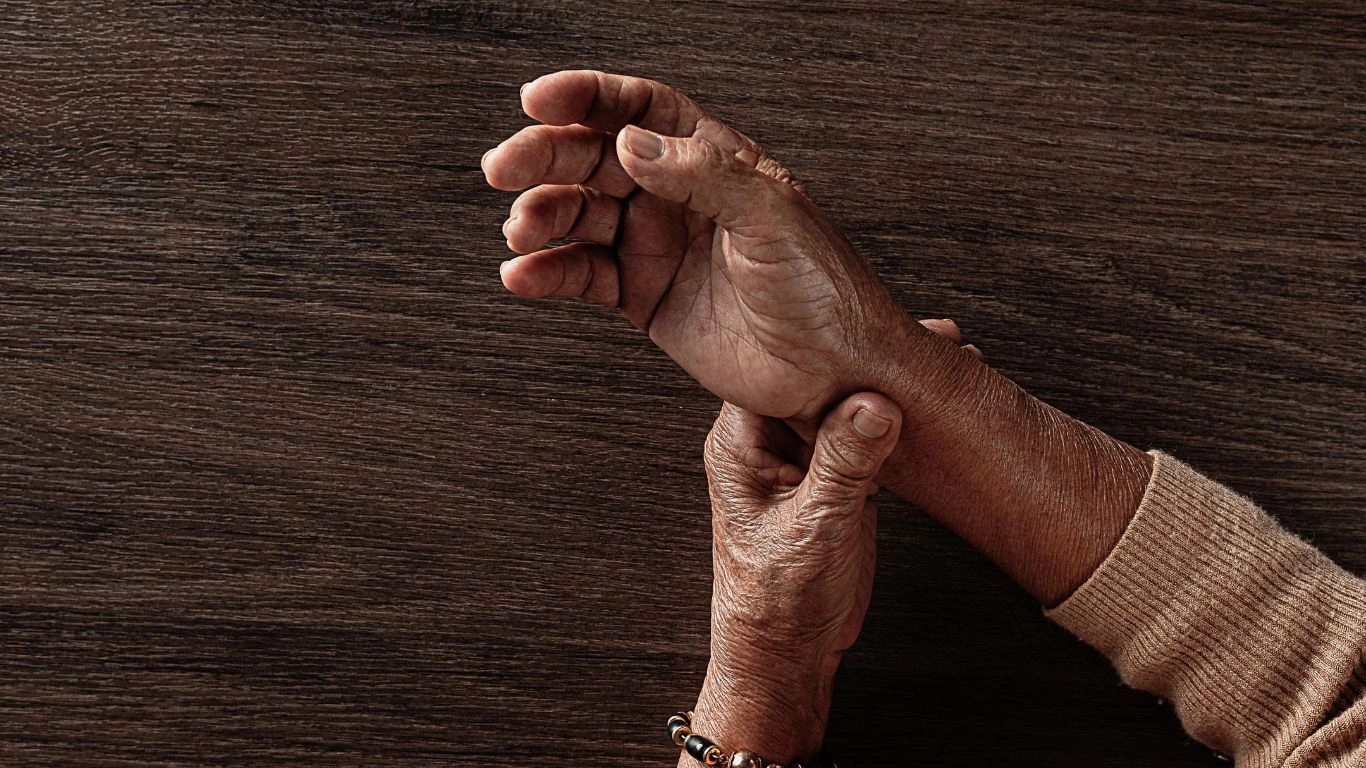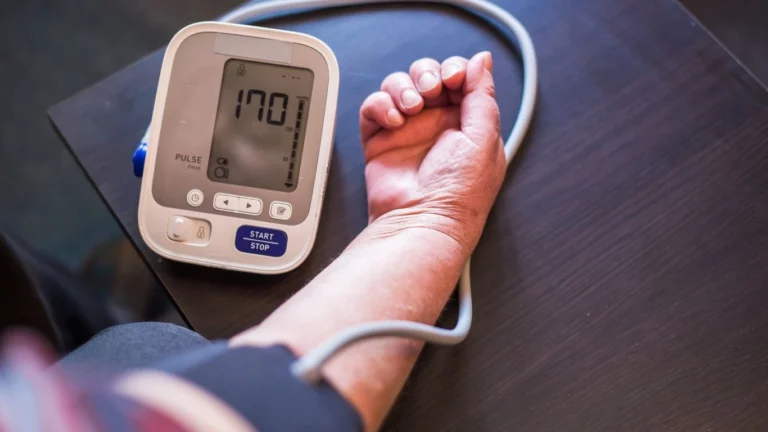Beat Rheumatoid Arthritis Fatigue Fast with Powerful Supplements
If there’s one question I get all the time as a rheumatology nurse practitioner, it’s this: “Is there anything I can take that’ll help me feel less tired all the time?” And believe me, I get it. Rheumatoid arthritis and managing fatigue with supplements is something I talk about almost daily in clinic. The exhaustion can be brutal, and it’s not just about needing a nap—this kind of fatigue feels like it crawls into your bones and sets up camp. If you’re living with RA, you already know it’s more than just joint pain—it’s a full-body experience that zaps your energy, no matter how much rest you think you’re getting.
What Causes Fatigue in Rheumatoid Arthritis?

First things first, let’s break down where this soul-sucking fatigue even comes from. RA fatigue isn’t just about being tired—it’s systemic. It’s tied to:
- Chronic inflammation: Your immune system is constantly in overdrive, and that’s exhausting for your body.
- Pain: Ever notice how being in pain all the time drains you mentally and physically?
- Medications: Yep, some of the same meds that are helping calm the inflammation might also be slowing you down.
- Poor sleep: Painful joints make it hard to get quality rest.
- Anemia: Many of my patients with RA also deal with low iron levels or anemia of chronic disease, which tanks your energy.
I remember working with a patient, Maria, who told me, “I can deal with the joint pain, but this tiredness? It’s like I’m walking through mud every single day.” That hit home. Because for so many, the fatigue ends up being more debilitating than the pain itself.
How Supplements Can Play a Role in Managing RA Fatigue

Okay, let’s get into the good stuff—what might actually help. Now, I’m not saying supplements are a magic fix (because they’re not), but when used wisely and alongside traditional RA treatment, they can give your energy levels a real boost. And I’ve seen it firsthand in patients who start with even just one or two targeted options.
1. Omega-3 Fatty Acids
These have been a game-changer for many of my patients. Omega-3s help reduce inflammation, which in turn can ease fatigue. Fish oil is the most common form, but if you’re plant-based, there are algae-based versions too. I usually recommend at least 1000 mg of combined EPA and DHA per day, but check with your provider first.
2. Vitamin D
This one’s a quiet energy thief. Many people with RA are deficient, and low vitamin D can not only worsen fatigue but also contribute to joint pain. I once had a patient tell me, “I didn’t realize how bad I felt until I started supplementing and felt human again.” I like to check levels first before recommending a dose, but anywhere from 1000 to 5000 IU daily is common.
3. Iron (but only if you’re low!)
If you’re anemic—and many RA patients are—adding iron could make a huge difference. But here’s the deal: don’t start it blindly. Too much iron can cause its own problems. Talk to your provider and get your ferritin and hemoglobin checked first.
4. CoQ10
This is a lesser-known supplement that I’ve seen help with cellular energy production. It’s not specific to RA, but for some patients, adding 100-200 mg a day made a noticeable dent in their fatigue levels. Plus, it’s generally well-tolerated.
5. Magnesium
Oh, magnesium—I love this one. It’s involved in over 300 biochemical reactions in the body, including muscle and nerve function, and energy production. A lot of folks are low and don’t even know it. If you’re struggling with sleep and fatigue, this might help both.
Choosing the Right Supplements for You

When it comes to managing rheumatoid arthritis and fatigue with supplements, there’s no one-size-fits-all. This is where I lean into my clinical experience—I’ve seen what works and what doesn’t, and trust me, more isn’t always better. You want to be intentional. My golden rule? Start small, track how you feel, and always keep your provider in the loop.
Here are a few things I suggest when adding supplements:
- Keep a symptom journal. Write down how you’re feeling energy-wise before starting, and check back in weekly.
- Give it time. Most supplements aren’t instant. You’ll need at least 4-6 weeks to see changes.
- Watch for interactions. Especially if you’re on RA meds like methotrexate or biologics—some supplements can mess with how meds work.
In my next chat, I’ll walk you through the lifestyle tweaks that complement supplements beautifully—because, let’s be honest, managing RA fatigue is all about layering the right strategies together. But for now, I hope this gives you a solid place to start exploring supplements that might actually make a difference in your day-to-day energy levels.
Everyday Lifestyle Habits That Support Energy and Ease Fatigue

Supplements can be helpful, no doubt. But let me tell you, if you’re not pairing them with smart daily habits, you might be missing out on even bigger gains. I’ve seen patients make massive progress with a few practical shifts—nothing extreme, just consistent and realistic changes. When I check in with someone who says, “I actually made it through the afternoon without crashing on the couch!” I know something’s clicking.
So here’s what I usually talk about in clinic when someone with RA tells me they’re completely wiped out by 2 p.m. every day:
1. Prioritize quality sleep
Sounds obvious, right? But poor sleep is a major culprit behind RA fatigue. Pain wakes you up, or maybe you’re tossing and turning from anxiety or discomfort. It’s a vicious cycle. I always ask about nighttime routines and suggest things like:
- Using a heating pad before bed to relax joints
- Keeping a cool, dark, quiet bedroom
- Limiting screens before sleep (yes, I’m looking at you, scrolling at midnight!)
- Trying magnesium glycinate if sleep is a struggle—it can help ease both pain and tension
2. Move daily (even if it’s gentle)
Look, I know exercise sounds laughable when your joints feel like they’re on fire. But hear me out—gentle, low-impact movement can actually reduce fatigue in the long run. I’ve had patients tell me, “I didn’t want to do it, but a 10-minute walk changed my whole mood.” Think stretches, chair yoga, pool therapy, or tai chi. You don’t need to run a marathon. You just need to move enough to keep blood flowing and muscles engaged.
3. Stay ahead of flares
Nothing drains energy faster than a full-blown RA flare. This is where your meds, diet, and stress management all work together. I usually help my patients track early flare symptoms so they can act fast. That might mean adjusting meds, resting more, or using ice and heat therapy early on to stay ahead of the inflammation spike.
Nutrition Tweaks That Actually Help With Energy

I can’t count how many times I’ve had someone say, “Is there something I should be eating—or not eating—that’ll help with this fatigue?” The answer is yes, 100% yes. What you eat feeds your energy levels—or drains them. And I’m not just talking about avoiding junk food (though that helps, too!).
Focus on anti-inflammatory foods
The more inflammation you’ve got going on inside, the more exhausted you’ll feel. Here are the big hitters I usually recommend adding to your plate:
- Leafy greens: Spinach, kale, arugula—loaded with antioxidants
- Fatty fish: Salmon, mackerel, sardines for omega-3s
- Turmeric: Add it to soups or smoothies (curcumin is the active compound with anti-inflammatory benefits)
- Berries and cherries: Natural inflammation fighters and sweet enough to feel like a treat
And just a quick note—some of my patients swear by cutting back on processed carbs and sugar. It doesn’t work for everyone, but if you notice a post-lunch energy crash, you might want to experiment with whole grains and complex carbs instead.
Stay hydrated
Simple but so overlooked. Dehydration can seriously tank your energy. I remind patients to aim for at least half their body weight in ounces of water per day. Herbal teas and electrolyte water (unsweetened) can help too. One woman I worked with started carrying a cute water bottle just to remind herself—and she told me it made more difference than she expected.
The Role of Mental Health in Managing RA Fatigue

This one’s huge—and so often forgotten. Mental health and fatigue are tightly connected, especially with chronic illnesses like RA. Stress, anxiety, and depression can amplify physical exhaustion. I’ve seen it too many times to ignore.
Check in with yourself regularly
It’s okay to not be okay. I encourage my patients to do a quick daily check-in: “How am I feeling emotionally today?” That awareness alone can lead to healthier coping strategies. Journaling, therapy, meditation—these aren’t fluff. They’re tools that genuinely help ease the burden of constant fatigue.
Try mindfulness or breathwork
Now I know this sounds a little crunchy, but trust me—it works. Even five minutes a day of focused breathing or a guided meditation can bring your nervous system down a notch. And when your body is less stressed, it has more space to heal and restore energy. There are tons of free apps out there, and it’s easier to start than you think.
RA is a whole-body experience. When we treat it from all angles—supplements, movement, mindset, and food—that’s when the real changes happen. It’s not about perfection, it’s about building a toolkit that works for your lifestyle. And from my years working with folks navigating this exact journey, I can tell you… fatigue doesn’t have to call the shots.
Tracking What Works: Listening to Your Body’s Fatigue Signals

One of the most overlooked tools for managing rheumatoid arthritis and fatigue with supplements (and everything else, honestly) is good old self-awareness. No fancy gadgets needed—just you, tuning into your body and noticing what helps and what doesn’t. I always tell my patients: your body is sending signals—your job is to listen.
Some folks I work with find that their energy patterns follow a rhythm. They may feel wiped out in the mornings, get a second wind in the afternoon, then crash after dinner. Others are the opposite. Once you start paying attention to that rhythm, you can plan around it, and even time your supplements, meals, or activity to work with—not against—your natural energy flow.
How to track your energy
- Use a simple notebook or app: Just jot down what you ate, what supplements you took, your stress level, and how you felt energy-wise.
- Look for patterns: Did a certain supplement seem to give you more stamina? Did skipping lunch leave you dragging?
- Share your notes with your provider: This helps us figure out what’s truly working and what might need tweaking.
It might sound tedious, but trust me—it’s a game changer. One patient I had kept a daily log for just two weeks and realized her 2 p.m. energy crash coincided with skipping her mid-morning snack. Small fix, big impact.
Combining Strategies: A Holistic Fatigue-Fighting Plan

Here’s the real truth: managing rheumatoid arthritis and fatigue with supplements is only part of the picture. It’s one piece in a bigger wellness puzzle. Over the years, I’ve seen the best results come when patients combine strategies—like dialing in their supplements while also tweaking their diet, reducing stress, and finding a movement routine that doesn’t aggravate their joints.
What a balanced approach might look like:
- Morning: Take Vitamin D and fish oil with breakfast, do some light stretching or a short walk
- Midday: Focus on anti-inflammatory lunch (think grilled salmon and leafy greens), hydrate well
- Afternoon: Quick rest or meditation break, check in with how you’re feeling
- Evening: Magnesium supplement after dinner, use heating pad or warm bath to relax joints, keep bedtime routine calm and consistent
This kind of rhythm—customized to fit your body—is where the magic starts to happen. Supplements can help fill the gaps, but it’s this gentle layering of habits that brings lasting relief. I always remind folks: you don’t need to overhaul your life overnight. Start with one change. Then add another when you’re ready.
When to Reach Out: Professional Support Makes a Difference
I can’t stress this enough—don’t try to do it all alone. As a rheumatology nurse practitioner, I’ve seen firsthand how much better outcomes can be when patients have a solid care team behind them. There’s no shame in needing help. If anything, it shows strength and self-awareness.
Signs it’s time to reach out:
- You’ve tried a few supplements and nothing’s changing
- Your fatigue is interfering with your work, relationships, or daily tasks
- You feel overwhelmed trying to figure out what to try next
- You’re unsure if a supplement is safe with your current meds
Whether it’s your rheumatologist, a registered dietitian, or someone like me in a clinic setting—we’re here to help you navigate this. That support matters. I’ve worked with patients who were stuck for months, then finally made progress after one appointment where we fine-tuned their regimen.
Helpful Resources
Here are a few trustworthy places I often send my patients for more info on managing rheumatoid arthritis and making smart supplement choices:
- Arthritis Foundation – Practical tips and current research on RA management
- National Center for Complementary and Integrative Health – Great info on vitamins, minerals, and safety
- American Gastroenterological Association – Useful if you’re dealing with gut issues related to RA or meds
Remember: The internet is packed with supplement advice—some of it helpful, some of it… not so much. Stick to reputable sources and bring your questions to your healthcare team.
Final Thoughts
RA fatigue is tough. I know from years of walking this path with patients just like you. But there is hope—and there are tools. From anti-inflammatory nutrients to gentle movement, smart supplement use, and mindset shifts, you have options. You don’t have to live in survival mode every day.
So start small. Pick one or two things from this article that resonate with you. And if you’re ever feeling stuck, reach out to a provider who gets it. You deserve energy, clarity, and relief—and you’re not alone in this.
Disclaimer: This article is for educational and informational purposes only and does not substitute professional medical advice. Always consult with your rheumatologist, primary care provider, or a qualified healthcare professional before starting any new supplement or treatment plan, especially if you have existing conditions or take prescription medications.

Tarra Nugroho is a dedicated Nurse Practitioner with a strong foundation in family and preventive care. She brings both compassion and clinical expertise to her practice, focusing on patient-centered care and health education. As a contributor to Healthusias.com, Tarra translates medical knowledge into clear, empowering articles on topics like women’s health, chronic disease management, and lifestyle medicine. Her mission is simple: help people feel seen, heard, and informed—both in the clinic and through the content she creates. When she’s not caring for patients, Tarra enjoys weekend hikes, plant-based cooking, and curling up with a good health podcast.







